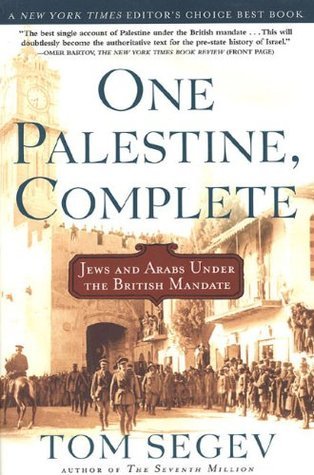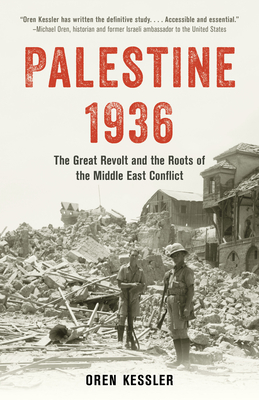
One Palestine, Complete: Jews and Arabs Under the British Mandate
Book Description
A land on the brink of transformation pulses with hope and despair. In 'One Palestine, Complete,' Tom Segev delves into the tumultuous era of the British Mandate, where Jews and Arabs collide in their quest for identity and nationhood. As political tensions ignite and cultural ambitions clash, alliances shift and dreams are dashed. Every page reveals the intricacies of a struggle as poignant as it is profound, the stakes never higher. Will coexistence emerge from the chaos, or will division carve an indelible mark on history? Discover the secrets of a land divided. What happens when two narratives collide?
Quick Book Summary
"One Palestine, Complete" by Tom Segev examines the deeply nuanced history of Palestine under British rule from 1917 to 1948. Against the backdrop of the British Mandate, both Jewish and Arab communities pursued their parallel—and often conflicting—dreams of nationhood. Segev weaves together personal stories, political intrigue, and cultural conflicts to illustrate the complex interplay of colonial policy and local aspirations. British officials, Zionist pioneers, and Arab leaders all navigated a rapidly changing landscape marked by hope, violence, and shifting alliances. The book explores how British administrative decisions, as well as local customs and rivalries, shaped the destinies of both peoples. Segev’s account reveals that the roots of the Israeli-Palestinian conflict lie not only in geopolitics, but also in the lived experiences and ambitions of individuals within the Mandate. Ultimately, the British effort to contain both Jewish and Arab aspirations left lasting legacies, carving stark divisions—and fragile possibilities—into the land's history.
Summary of Key Ideas
Table of Contents
British Colonial Rule and Its Dilemmas
Segev opens by detailing the arrival of British forces in Palestine after World War I, setting the stage for three decades of profound change. The British administration, tasked with implementing the Balfour Declaration, faced a dual obligation: to foster a "national home for the Jewish people" without prejudicing the rights of existing Arab inhabitants. This ambiguity created ongoing dilemmas as British officials struggled to balance their imperial interests with the conflicting aspirations of Jews and Arabs.
Competing Nationalisms: Jewish and Arab Aspirations
The book traces the emergence of parallel nationalist movements among Jews and Arabs. Zionist leaders worked tirelessly to build political and economic infrastructure for a future Jewish state, while Palestinian Arabs organized in opposition, seeking both autonomy and the protection of their land. Segev uncovers how each group perceived the British and how the Mandate became a catalyst for both cooperation and animosity, with shifting alliances and deeply entrenched mistrust marking the era.
Daily Life, Identity, and Cultural Transformation
Beyond politics, Segev delves into the social fabric of Mandate Palestine. He explores the development of new cities like Tel Aviv, changes in agriculture, the growth of Hebrew and Arabic press, and shifting gender roles. Daily life was a negotiation between tradition and modernity, influenced by diverse waves of immigration and British policies. These cultural transformations shaped evolving identities and deepened divisions as communities grappled with new realities.
Violence, Resistance, and Rebellion
Segev examines the cycles of violence and protest that erupted as hopes frequently turned to despair. Incidents such as the 1929 riots, the Arab Revolt of 1936-39, and increasing acts of terrorism highlighted the spiral of mistrust and retaliation. British attempts at mediation—White Papers, commissions, or repressive crackdowns—often exacerbated tensions, making lasting resolution elusive. Resistance became a mainstay of both Jewish and Arab strategies toward nationhood.
Lasting Legacies of the Mandate Era
The Mandate's end left a legacy of unresolved conflict and transformed identities. Segev concludes that British rule failed to reconcile the claims of Jews and Arabs, instead deepening the rift between them. The administrative, economic, and social structures put in place during the Mandate shaped subsequent decades, influencing the emergence of Israel and the displacement of Palestinian Arabs. Segev’s narrative underscores that the conflict’s seeds were sown in everyday encounters as much as in international diplomacy, with the possibility and limits of coexistence enduring as central questions.
Download This Summary
Get a free PDF of this summary instantly — no email required.





